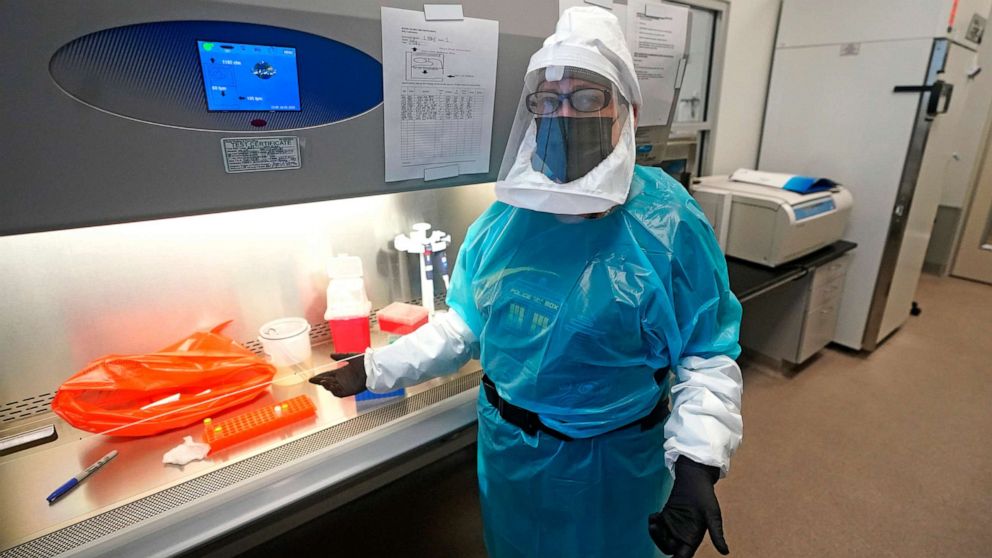


At least four children in the U.S. have now tested positive for monkeypox, officials have confirmed.
Amidst a growing emergence of cases across the country, state officials in Indiana confirmed late last week that two children had tested positive for monkeypox. At this time, no additional information has been made available due to patient privacy concerns, the Indiana Department of Health wrote in a statement.
“Like many other states, Indiana has seen an increase in monkeypox cases over the past month,” State Health Commissioner Dr. Kris Box said in a statement.
Federal officials had previously confirmed, last month, that two other children in the U.S had tested positive for monkeypox.
MORE: Health officials fight monkeypox stigma as virus spreadsOne case was confirmed in a toddler, who is a resident of California, and the other was reported in an infant, a non-U.S. resident, who was tested while traveling through Washington, D.C. The two cases are unrelated, located in different jurisdictions, and were likely the result of household transmission.
Although no information is available about the current status of the virus-positive children in Indiana, both of the other children, who have been diagnosed with monkeypox, were said to have been in good health.
However, there are concerns among health officials about how monkeypox could impact young children.
Over the weekend, the Centers for Disease Control and Prevention warned in a health alert that there is some preliminary evidence to suggest children younger than 8 years-old could develop more severe illness, if infected with monkeypox.
At this time, the majority of monkey cases confirmed domestically and globally in the current outbreak have been detected in gay, bisexual or other men who have sex with men. However, health officials have repeatedly stressed that the virus does not discriminate, and anyone exposed to monkeypox can contract the virus.
People are most commonly infected by close person-to-person contact, including intimate contact, though it is possible for the disease to also spread through respiratory secretions or by "touching objects, fabrics (clothing, bedding, or towels), and surfaces that have been used by someone with monkeypox," according to the CDC.
MORE: Biden administration still weighing whether to declare monkeypox a public health emergencyThe news of additional pediatric monkeypox cases come amidst growing pressure from officials across the country for the U.S. to declare a public health emergence for the outbreak.
On Monday, Illinois became the second state in the country to declare monkeypox a public health emergency, and thus, designating Illinois a "disaster area" for the virus, Gov. J.B. Pritzker announced in a press release.
“[Monkeypox virus] is a rare, but potentially serious disease that requires the full mobilization of all available public health resources to prevent the spread,” Pritzker wrote in a statement. "That’s why I am declaring a state of emergency to ensure smooth coordination between state agencies and all levels of government, thereby increasing our ability to prevent and treat the disease quickly."
The governor's declaration will allow the Illinois Department of Public Health to expand access to resources, such as vaccines and testing, in the state's efforts to combat the virus.
"We have seen this virus disproportionately impact the LGBTQ+ community in its initial spread. Here in Illinois we will ensure our LGBTQ+ community has the resources they need to stay safe while ensuring members are not stigmatized as they access critical health care," Pritzker added.
MORE: 5 things to know about monkeypox and skin: AnalysisLast week, New York became the first state to declare monkeypox a "disaster emergency," with officials calling New York City the "epicenter of the outbreak."
Across the country, in San Francisco officials have also implemented a local emergency declaration for monkeypox.
Globally, more than 22,000 cases reported globally, including nearly 5,200 cases reported in the U.S., according to the CDC.
Monkeypox cases have now been reported in nearly every state in the country, with Montana, Vermont, and Wyoming now the only states that have yet to confirm cases.